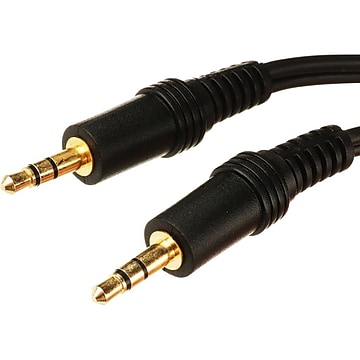Audio Cables
Trending now
When selecting an audio cable, computer accessory, or any other type of cable, it is important to consider the length, gauge, and type of material. The length of the cable is important because it will determine how far the signal can travel before it becomes too weak. You should also consider the compatibility with your existing computer setup and devices. Some cables are only compatible with certain types of speakers or computers.
Choosing the right audio cable connector type
You will first need to determine what type of device you are connecting to - a computer, speaker, microphone, or other audio accessories. This will inform the type of connector your audio cable should have, and if it needs an RGA connection, USB connection, HDMI connection, or some other type of cable connection.
Selecting the correct cable gauge and length
Once you have determined the type of cable connector you need, you should also consider the audio cable gauge. The audio cable gauge will determine the strength of the signal that is sent through the cable. A thicker audio cable will have a lower gauge and will be able to carry a stronger signal. The next thing you should consider is the audio cable length. The audio cable length will determine how far the signal can travel before it becomes too weak.
Material quality of the cable
The type of material your audio cables are made from is also important because it can affect the quality of the signal. For example, copper is a better conductor than aluminum. This means that a copper audio cable will provide a better signal than an aluminum audio cable.






































































